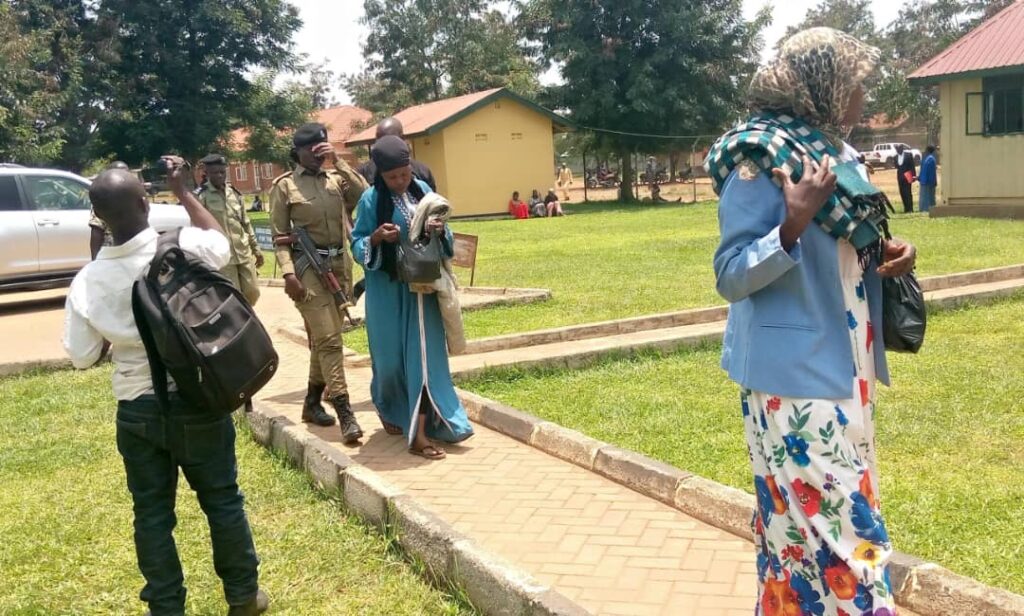Luuka: When government rolled out the Parish Development Model (PDM), the ambitious program was billed as a turning point for rural transformation, empowering ordinary Ugandans to lift themselves out of poverty. But in Luuka District, hope has turned into frustration for many beneficiaries who allege they were forced to pay illegal fees before accessing funds.
That frustration boiled over last week when two PDM SACCO leaders in Busalamu Town Council were paraded before the Iganga Chief Magistrate’s Court on corruption charges.
The accused – Nangobi Safina (42), Secretary of Busalamu South Ward SACCO, and Treasurer Nakangu Ziyada – were charged with four counts of corruption and remanded to prison. Their co-accused, SACCO Chairperson Buwote Stephen, is still on the run.
Prosecution alleges that between May and July 2025, the trio, together with others still at large, fraudulently obtained money from PDM beneficiaries. They reportedly convinced vulnerable residents that payments were a prerequisite to access funds – a claim that turned out to be false.
The victims, all struggling residents eager to join the government poverty-alleviation program, included: Makiika Julius – Shs46,000, Kyesubire Scovia – Shs56,000, Nabona Farouk – Shs46,000, and Namulondo Betty – Shs30,000.
For them, the dream of joining a government-backed savings and credit scheme came at a painful financial cost.
The suspects were rounded up in a joint operation by the State House Anti-Corruption Unit and Luuka Police, highlighting growing concern about the integrity of the program.
In court, they pleaded for bail on medical grounds, with lawyers citing Nangobi’s struggle with diabetes. But Magistrate Daniel Epobu Kiboko was not persuaded. He remanded them until September 16, 2025, when their bail application will be reconsidered.
The State Attorney informed court that investigations were complete and requested a hearing date, signaling that the case could move quickly to trial.
The arrests followed mounting pressure from Luuka Resident District Commissioner (RDC) Mr. Kibwika Micheal, who had convened a stakeholders’ meeting to address widespread complaints of corruption within the PDM program.
At that meeting, leaders and civil servants acknowledged challenges ranging from selective vetting of beneficiaries to manipulation of lists and outright extortion. The resolutions included:
Intensifying investigations into corruption tendencies, conducting a district-wide performance review of PDM, enhancing sensitization to ensure beneficiaries understand that PDM funds are free of extortion and directing extension workers to dedicate more time to supporting communities.
The case in Busalamu is not an isolated incident. Across the country, the Parish Development Model has faced criticism over bureaucratic bottlenecks, poor sensitization, and misuse of funds.
For many Ugandans, the program remains their best hope of escaping poverty. But unless accountability mechanisms are strengthened, the promise of PDM risks being overshadowed by corruption scandals like the one unfolding in Luuka.
As the accused await their next court appearance, questions linger: How many other beneficiaries have been quietly extorted? How deep does the rot go? And will this case finally send a strong signal that corruption in poverty alleviation programs will not be tolerated?
For residents like Makiika, Kyesubire, Nabona, and Namulondo, justice cannot come soon enough.




